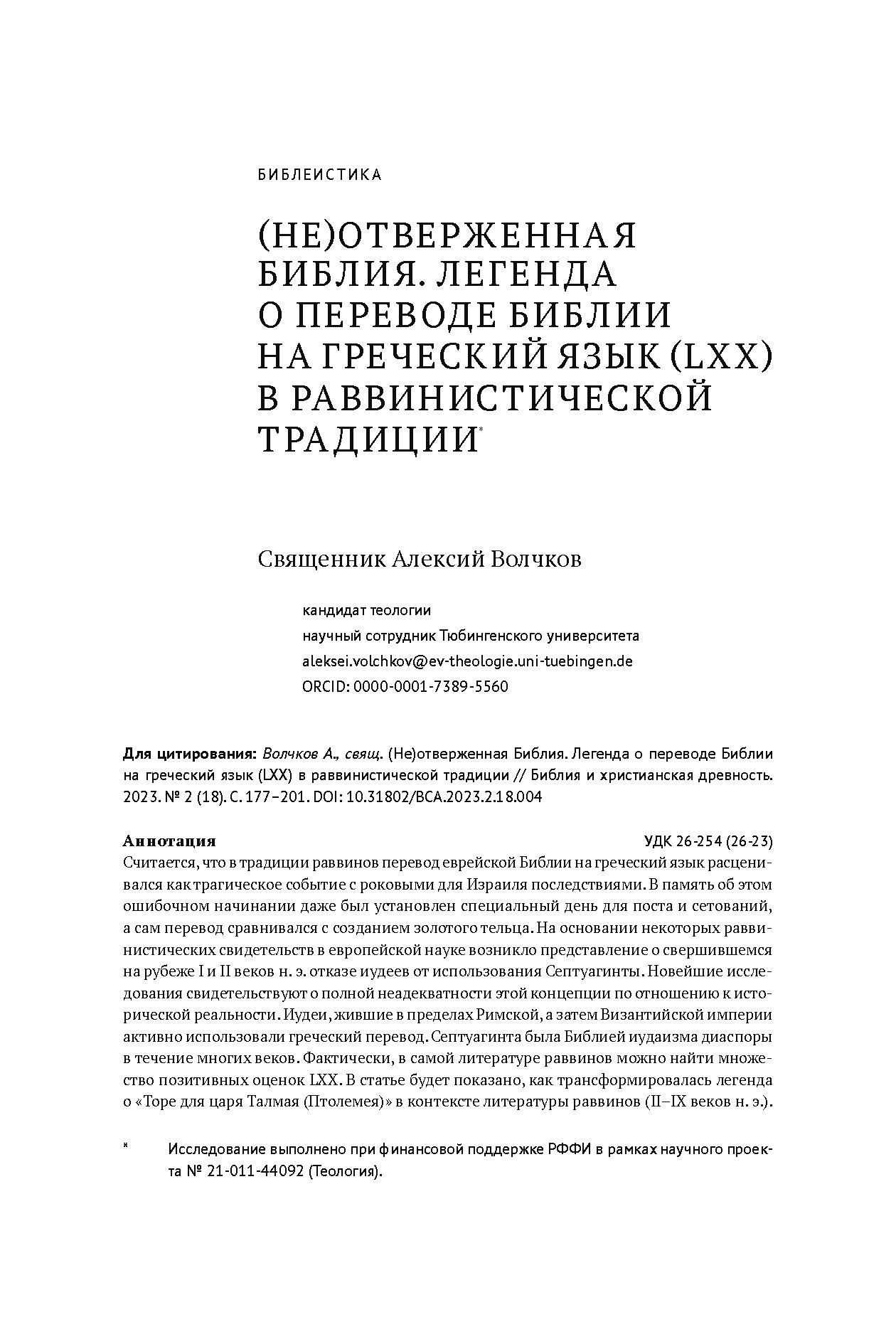(Un)rejected Bible: The Legend of the Greek Translation of the Bible (LXX) in the Rabbinic Tradition
Keywords:
Alexandria, Jewish Hellenistic literature, Jerusalem, inter-testamental literature, Septuagint, Letter of Aristeas, pseudepigrapha, Hellenistic Judaism, Mishna, Talmud, Tosephta, Bavli, Bible translationAbstract
It is believed that in rabbinic tradition, the translation of the Hebrew Bible into Greek was regarded as a tragic event with fatal consequences for Israel. To commemorate this misguided undertaking, a special day of fasting and lamentation was even established, and the translation itself was compared to the creation of the golden calf. Based on some rabbinic testimonies, European scholarship has developed the notion that the Jews abandoned the Septuagint at the turn of the first and second centuries AD. The latest research shows the complete inadequacy of this concept in relation to historical reality. The Jews who lived within the Roman and later Byzantine empires made extensive use of the Greek translation. The Septuagint was the Bible of Diaspora Judaism for many centuries. In fact, there are many positive evaluations of the LXX in the rabbinic literature itself. This article will show how the legend of «Torah for King Tolmai (Ptolemy)» was transformed in the context of rabbinic literature (2nd–9th centuries CE).

Downloads
Published
Issue
Section
License

This work is licensed under a Creative Commons Attribution-NonCommercial-ShareAlike 4.0 International License.


